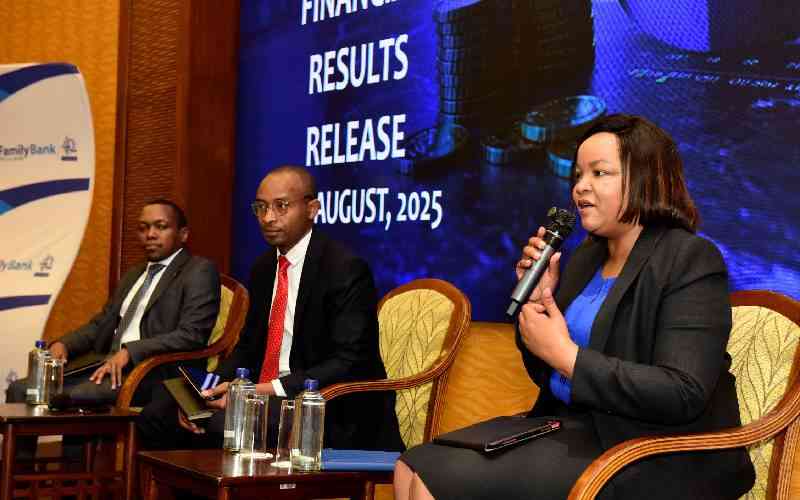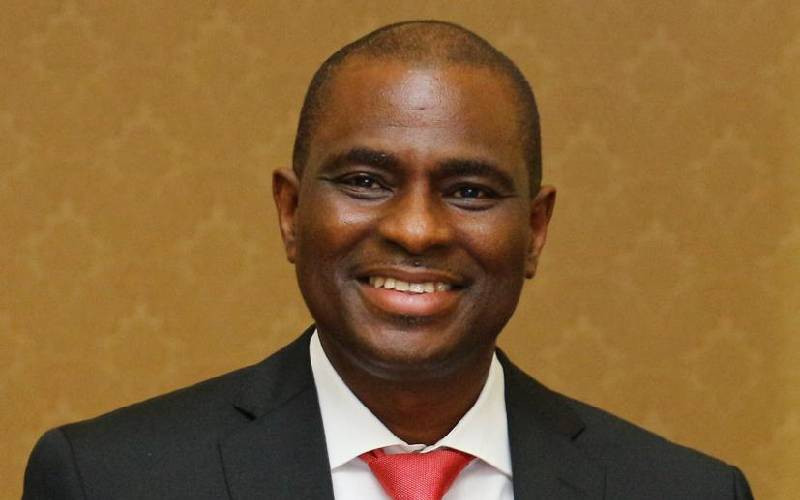
Tax efficiency measures propelled Family Bank into a 38.7 per cent jump in profit after tax to Sh2.3 billion for the six months ended June 30, 2025.
The lender's asset base expanded to Sh192.7 billion over the six months, up from Sh158.3 billion in a similar period in 2024, reflecting a growth of 21.8 per cent.
This is as net loans and advances increased by 10.4 per cent to Sh100.9 billion from Sh91.4 billion in the same period last year.
According to the results released yesterday, while the profit after tax in the review period improved by 38.7 per cent, profit before tax went up 26 per cent from Sh2.3 billion to Sh2.9 billion.
Chief Financial Officer Paul Ngaragari explained that the larger margin in profit after tax goes to show the efficiency of the bank's utilisation of the available tax provisions to grow its bottom line.
“Most businesses in Kenya continue to have a lot of cash outflows due to their inability to maximise on various tax provisions,” he said during the lender's investor briefing in Nairobi.
“At Family Bank, we have employed highly experienced tax experts.”
Ngaragari said every investment decision the bank makes has to be taken through the tax department to ascertain its compliance with tax laws.
He said the same threshold has been applied to the bank’s relationship with vendors, with a focus on issues around double taxation.
“Any time we engage any of our vendors, we subject the transactions to review before we sign the contract. We also review all contracts with our vendors to check if they are tax efficient,” he said.
Ngaragari said the law has provisions that allow institutions to claim tax allowance on any losses arising from business-related activities.
“That means if by any chance I write off a loan, be it past or present, there are requirements under the Income Tax Act as to what qualifies for tax allowance and what does not,” said the CFO.
He added: “If you look at some of the players in the industry, their effective tax rate is way below 30 per cent, and we want to get to those levels.”
Chief Executive Nancy Njau hailed the results, coming against the backdrop of falling lending rates and depressed incomes among households.
Stay informed. Subscribe to our newsletter
She said the lowering of the Central Bank Rate (CBR) that closed the half-year period at 9.75 per cent, necessitated the bank to reprice its credit facilities.
“That means the interest income that we get from our lending becomes thin,” she said.
“As a bank, we have been very strategic in ensuring that we disburse as much to our customers and have our volumes go up.”
During the period, the bank’s net interest income went up 39.9 per cent to Sh7.0 billion from Sh5.0 billion, buoyed by a 48.7 per cent growth in interest income from government securities, and a 14.8 per cent increase in interest income from loans and advances, which closed at Sh7.7 billion.
Total interest income in the period stood at Sh11.4 billion from Sh9.2 billion for the six months ended June 30, 2024.
When compared to the six months to December 31, 2024, when the books closed at Sh20.3 billion for total interest income, the 24 per cent growth in total interest income to Sh11.4 billion for the six months ended June 2025 is lower, confirming Njau’s sentiments on the thinning of revenue from lending.
Similarly, net interest income for the six months to June 2025, which closed at Sh7.0 billion, was lower when compared to the six months to December 2024, which stood at Sh10.7 billion.
